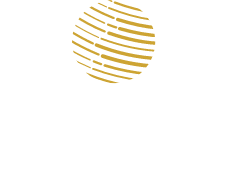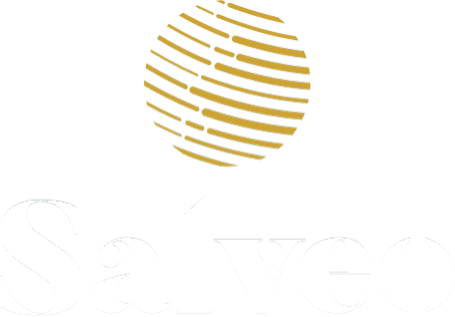Hiring in Germany

How to recruit in Germany?
Known for its quality industries and advanced technology, Germany is increasingly attracting companies looking to expand internationally. However, the recruitment process can be complex due to the regulations and standards in place.
In this context, Salveo presents itself as your trusted partner. We not only offer recruitment solutions compliant with German labor standards but also provide local expertise.
Recruitment channels
- Xing
- Make it in Germany Job Exchange
- Federal Employment Agency
- Stepstone
- Indeed
- Monster
The increasingly important sought-after skills
- Digital literacy
- Complexity management
- Virtual management skills
- Collaboration
- Emotional and social intelligence
- Resilience
Some general developments in the recruitment process in Germany
- The CV is becoming increasingly important.
- The traditional cover letter is disappearing.
- It is advisable to offer flexible work models to German employees.
- It is advisable to utilize artificial intelligence and recruitment process automation.
- You must position yourself as a sustainable employer in Germany (despite the crisis and inflation). Remote work contributes to this aspect by reducing commutes.
What are the essential pieces of information to know before recruiting in Germany?
Before recruiting in Germany, it is essential to have a thorough understanding of the labor standards and regulations that apply in the country.
New laws on skilled worker immigration
November 2023: A new law on skilled worker immigration has come into effect, marking a turning point in the immigration landscape in Germany. This law includes several significant changes, including a reduced salary threshold for certain entry-level positions or in sectors in demand such as mathematics, computer science, natural sciences, engineering, and human medicine, among others. Additionally, access to the German labor market is made easier for IT experts without a university degree but with at least three years of professional experience. Skilled workers from another EU country can now enter Germany without a work visa through the EU Blue Card, allowing them to stay for up to 90 days for work purposes without requiring a work permit. Furthermore, family reunification is simplified for family members of a skilled worker holding the EU Blue Card, thus facilitating their settlement in Germany or another EU member state.
March 2024: Starting from March 2024, a worker with two years of practical experience in a profession not regulated by the state can now work in Germany without needing recognition and equivalence of their diploma. Additionally, healthcare personnel from third countries who have completed a one- or two-year training course as a nursing or healthcare assistant will be able to work in Germany, provided they hold a German training or a foreign nursing qualification recognized in the country. Moreover, it is now possible to conclude a “recognition partnership” regarding professions regulated by the state, subject to fulfilling certain conditions, such as recognized vocational training of at least two years completed in the home country or a university degree accompanied by German language skills.
June 2024: In June 2024, the introduction of the Opportunities Card, or Chancenkarte, opens up new perspectives for skilled workers from third countries seeking employment in Germany. To obtain this card, they must accumulate six points based on criteria such as qualification, language skills, professional experience, age, connection to Germany, and the professional potential of their partner.
Sectors of employment to prioritize
Automotive industry, engineering and advanced technologies, artificial intelligence (AI), renewable energies, healthcare, information and communication technologies (ICT), international trade and logistics, chemical industry, consulting, and professional services. Profiles of engineers and developers are highly sought after.
Types of employment contracts
Here are the six main types of employment contracts:
- Permanent employment contract (Unbefristeter Arbeitsvertrag)
- Fixed-term employment contract (Befristeter Arbeitsvertrag)
- Full-time contract (Vollzeitvertrag)
- Part-time contract (Teilzeitvertrag)
- Temporary employment contract (Zeitarbeit or Leiharbeit)
- Home office contract (Heimarbeit)
Probation period
The duration of the probationary period may vary depending on the applicable collective agreement, individual agreements between the employer and the employee, and the specific nature of the position. It is generally a maximum of six months for permanent contracts (CDI) and temporary employment contracts. And a maximum of three months for fixed-term contracts (CDD).
Working hours and overtime
The standard workweek in Germany is 40 hours per week over 5 days, with a maximum of 8 hours per day. However, this duration can be extended to 10 hours per day if an average of 8 hours per day is maintained over a maximum period of 6 months. Employees are entitled to a minimum break of 30 minutes after 6 hours of work.
Generally, overtime is limited to 8 hours per week and can extend up to 10 hours under certain conditions. Employees are typically paid at least 25% more than the normal hourly wage.
Annual paid leave
In addition, they are entitled to a minimum of 20 days of paid annual leave per year, depending on the duration of their employment. Some collective agreements may provide for additional paid leave.
Employees are entitled to one full day of rest per week, typically on Sunday. However, there are some exceptions for certain sectors such as retail.
Public holidays
New Year’s Day (Neujahrstag) | 1st January |
Good Friday (Karfreitag) | 10 April |
Easter Monday (Ostermontag) | 13 April |
Labour Day (Tag der Arbeit) | 1st May |
Ascension (Christi Himmelfahrt) | 30 May |
Whit Monday (Pfingstmontag) | 9 June |
German Unity Day (Tag der Deutschen Einheit) | 3rd October |
Christmas Day (Erster Weihnachtstag) | 25 December |
Second day of Christmas (Zweiter Weihnachtstag) | 26 December |
In addition to these national public holidays, there are also specific regional holidays in certain federal states. These may include religious events, commemorative days, or local celebrations.
Spoken languages
German is and remains the official language and the most widely used language in all aspects of daily life, public administration, education, and business.
Compensation and minimum wage
In Germany, the average gross salary ranges between 2,200 and 4,500 euros, depending on the industry, level of experience, geographic location, and company size.
Furthermore, the legal minimum wage is 1,584 euros per month for full-time work (based on 40 hours per week).
Termination of employment contract by the employer
In Germany, the contract can be terminated by the employer for economic reasons, reasons related to the employee’s conduct or performance, or for personal reasons (inability to work due to health reasons). The employer generally must provide notice to terminate the contract, the duration of which is defined by collective agreements. The employee may receive severance pay if they have worked for many years in the company or if they are terminated for economic reasons.
German legislation provides protection against unfair dismissals (if they are discriminatory, without valid reason, or if they violate the employee’s rights).
Salveo's expertise: your best asset for recruiting in Germany
Our expertise is your greatest asset for recruiting in Germany, for the following reasons:
- We handle all administrative and operational aspects related to recruiting your future collaborator.
- We collaborate with your teams to define the ideal profile sought, taking into account the necessary skills, experience, and corporate culture.
- We conduct thorough research on various job platforms, social networks, and other open sources to identify potential candidates. Additionally, in the absence of non-solicitation agreements, we are able to directly contact candidates already working for similar companies, thus taking a proactive headhunting approach in Germany.
- We select the most relevant profiles for interviews, providing detailed reports to your teams to facilitate decision-making.
- We conduct comprehensive background checks on candidates, ensuring the accuracy of the information provided. This way, you can be assured of recruiting reliable and highly qualified professionals for the available positions.
In addition to the recruitment process, Salveo can also deploy partner search services, subsidiary creation, or technical and regulatory standards.
Choose Salveo and you’ll benefit from a premium, fully personalized recruitment service tailored to meet all your needs.
Recevez votre étude personnalisée
+33 (0)1 84 79 17 50
09h - 18h UTC+1
22 rue Georges Picquart75017 Paris



